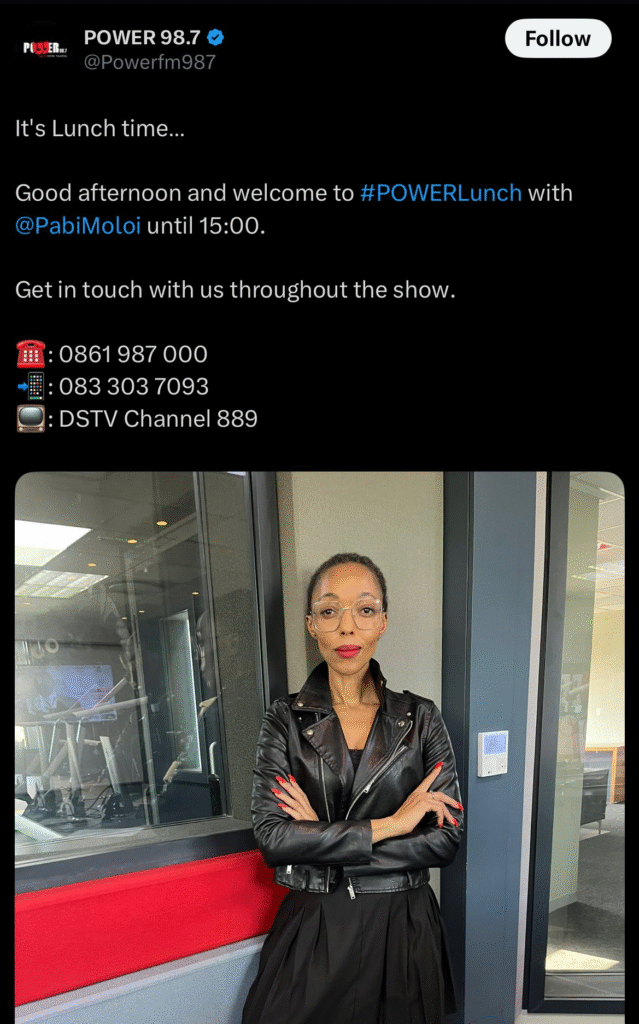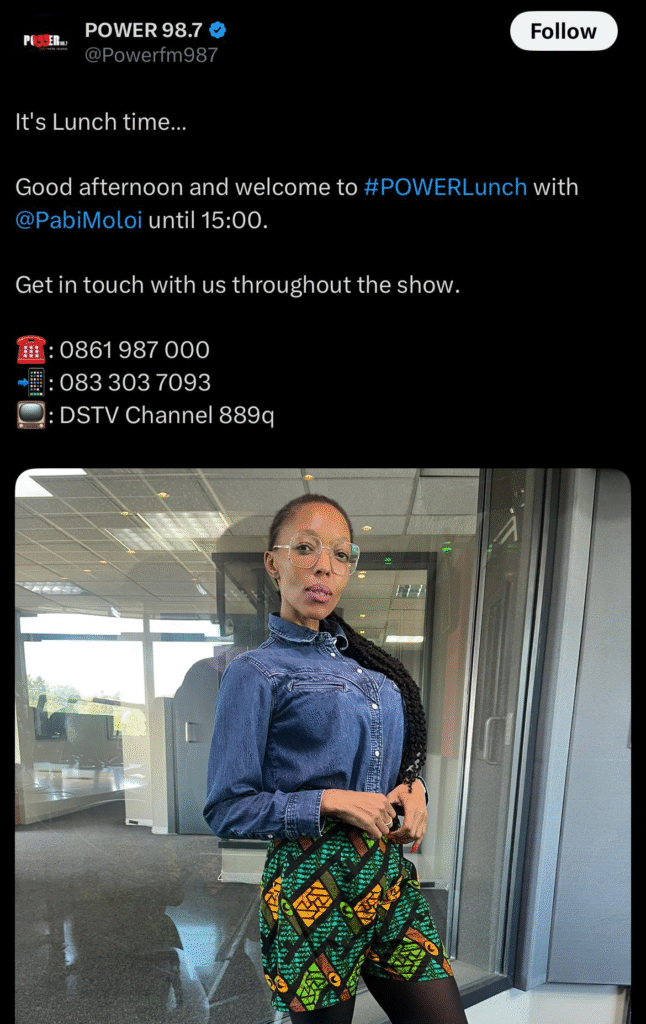Power FM is under fire following accusations that the station may have played a role in enabling cyberbullying targeted at media personality Pabi Moloi. This comes after a post on the station’s official X (formerly Twitter) account garnered over 1.4 million views within 12 hours — and attracted a flood of hateful and body-shaming comments.

The post, which featured an image of Pabi, quickly spiraled into a platform for internet trolls, with many users making cruel and inappropriate remarks about her appearance. Among the comments were degrading messages about her weight and calls for her to pursue “healthy nutrition” — reinforcing harmful stereotypes and contributing to a toxic online culture.

In a surprising move, Power FM followed up with yet another post featuring Pabi the next day. Critics argue that this decision may exacerbate the situation rather than mitigate the harm already caused. While the intent behind the post remains unclear, its impact is evident: it has further fueled an environment of public shaming and harassment.
Social media is a powerful tool, but with that power comes responsibility. Media platforms — especially respected broadcasters like Power FM — have a duty to protect individuals from online abuse, not amplify it. The current climate of unchecked digital cruelty makes it more important than ever for organizations to moderate their platforms thoughtfully and act swiftly when harm is evident.

Public sentiment suggests that Power FM should take immediate action by removing the original and follow-up posts, issuing a statement of support for Pabi Moloi, and committing to stronger content moderation practices in the future. Deleting the post may not undo the harm, but it would be a step toward accountability and empathy in the digital age.
Pabi Moloi deserves better — as does anyone who becomes the target of online abuse. It’s time we hold digital gatekeepers to higher standards and demand that dignity and respect remain at the forefront of our public discourse.